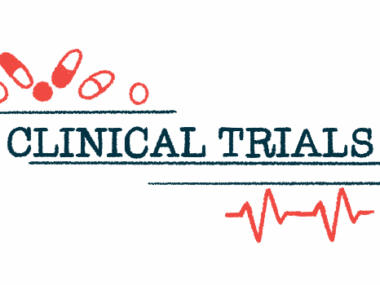Ionis to seek FDA approval of donidalorsen after positive trial data
Treatment found to reduce rate of swelling attacks significantly in HAE patients
Written by |

The investigational therapy donidalorsen was well tolerated and significantly reduced the rate of swelling attacks in hereditary angioedema (HAE) patients, meeting the main goal of the Phase 3 OASIS-HAE trial.
Other secondary trial goals were also met, according to Ionis Pharmaceuticals, which is developing the treatment. The company noted plans to present the data at an upcoming scientific conference.
The company is also preparing to seek regulatory approval for the therapy in the U.S. Otsuka Pharmaceutical, which recently obtained exclusive rights from Ionis to commercialize donidalorsen in Europe, is preparing a similar application.
“We are very pleased with the positive topline results from the Phase 3 OASIS-HAE study of donidalorsen,” Kenneth Newman, MD, senior vice president, head of clinical development at Ionis, said in a company press release.
Donidalorsen ‘could be an attractive new treatment option for patients’
“We believe donidalorsen, if approved, could be an attractive new treatment option for patients with HAE, many of whom continue to experience unpredictable, painful and severe breakthrough attacks despite currently available prophylactic treatments,” Newman said.
In HAE, the overproduction of a signaling molecule called bradykinin causes blood vessels to widen and fluid to leak out, driving the swelling attacks that characterizes the disease. Bradykinin is produced from precursor molecules with the help of an enzyme called kallikrein.
Donidalorsen is an antisense oligonucleotide — a short, lab-made sequence of genetic material — designed to lower the production of prekallikrein, a kallikrein precursor. By interfering with the pathways leading to bradykinin production, donidalorsen is expected to reduce the frequency of HAE attacks when used as a routine preventive, or prophylactic, treatment.
Results from a previous Phase 2 trial (NCT04030598) involving 20 HAE patients showed donidalorsen significantly reduced swelling attacks compared with a placebo over about four months.
In its open-label extension study (NCT04307381), the therapy continued to prevent swelling attacks and improve life quality with up to two years of treatment.
Phase 3 OASIS-HAE trial enrolled 91 patients with recurrent swelling attacks
The Ionis-sponsored Phase 3 OASIS-HAE trial (NCT05139810), which launched in 2021, enrolled 91 patients, 12 and older, with HAE type 1 or 2 who were experiencing recurrent HAE attacks before enrollment.
Participants were randomly assigned to receive under-the-skin (subcutaneous) injections of donidalorsen (80 mg) or a placebo once every four weeks (monthly) or every eight weeks (two months) for a total of 24 weeks, or about six months.
Top-line results now reported by Ionis indicate both dosing regimens of donidalorsen led to significant reductions in HAE attack rates compared with the placebo, meeting the trial’s main goal.
Secondary goals were related to other measures of disease control and life quality. The trial met all secondary endpoints in the monthly dosing group and key secondary endpoints in the bimonthly group, according to Ionis.
As in the Phase 2 trial, the treatment was found to be safe and well tolerated, with no serious adverse events occurring in patients treated with donidalorsen.
“We are grateful to the patients, caregivers, investigators and study teams who participated in the OASIS-HAE study,” Newman said.
More than 90% of trial participants entered extension study
More than 90% of participants completed OASIS-HAE and entered into a Phase 3 open-label extension study (NCT05392114), designed to evaluate the long-term safety and efficacy of the investigational therapy.
During the study, all previous OASIS-HAE participants will receive donidalorsen once every four or eight weeks. The trial also includes a switch cohort of patients who were previously treated with another prophylactic HAE medication. Those participants will receive donidalorsen every four weeks. Ionis plans to share data from the extension study by mid-year.
Donidalorsen currently holds orphan drug designation in the U.S., a status intended to help speed the development of treatments for rare diseases. Efforts to earn a similar designation in Europe are underway.





